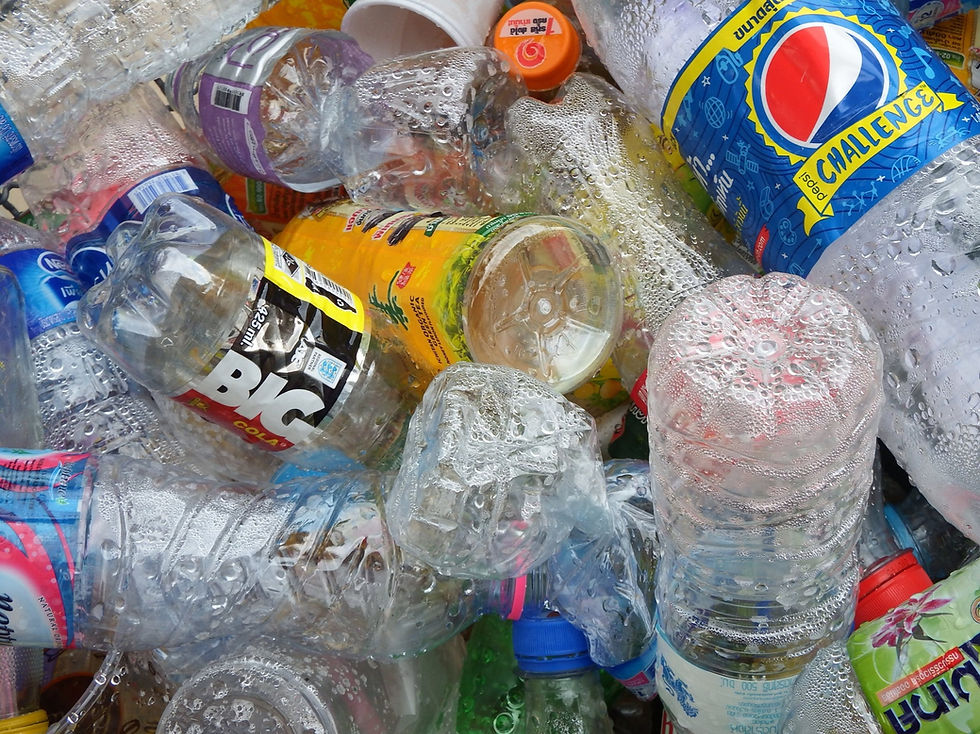Climate Injustice: Taking responsibility
- Just Love

- Sep 27, 2020
- 3 min read
by Libby Ashley
Climate change is a well-known issue by now, and it’s one I’ve personally been passionate about for some time. We’re all well aware that the environment changing, but what we may not be fully appreciating is the disproportionate consequences this is having on poorer communities, in contrast to the rich. Could it be that we’re not recognising the full significance of our actions?
Research produced by Oxfam¹ in 2015 found that the world’s richest 10% are responsible for half of carbon emissions globally, whilst the poorest 3.5 billion people, collectively receiving around 8% of global income, are responsible for only a tenth. This is a massive contrast, so it should be expected that the rich experience the effects of climate change equally, if not more, than poorer communities. This is unfortunately far from reality.
Tearfund are a Christian charity who have recognised climate change as a justice issue and are working to support communities as they suffer the associated challenges. After a short while reading through some of their blog posts², it is so clear that climate change is harder on deprived communities in places like rural Ethiopia than it is for me in Aberdeen. It is deeply saddening to read about individuals’ already demanding lives being thrown through challenges such as droughts, malnourished soil, severe flooding or unexpected storms. All this because of climate change, for which they are not responsible.
Women in rural parts of Kenya are being forced to walk further and further for safe water³. These are women who are likely to be caring for children, the elderly or sick. As well as this, possibly the biggest threat to families who rely directly on the land for sustenance is the increasing unpredictability of rainfall seasons. The number of climate refugees (a term that does not yet exist in international law) is continually on the rise, with the most widely cited projection being 200 million by 2050⁴. The current estimate states that one person is displaced by disaster every second⁵. This is more than double the number of forcibly displaced people due to persecution, conflict, violence or human rights violations by the end of 2019⁶. In Bangladesh, a 2007 report estimated 300,000 to 400,000 climate refugees had moved to the capital city Dhaka: an already overpopulated city prone to severe flooding.
The terrible reality with respect to all these situations is that climate change is more than a niche issue, as it can seem from our comparatively comfortable positions. Climate change is a humanitarian crisis. Climate change has visible consequences today. Climate change is affecting the lives of the millions of those least equipped to respond, and least responsible. Climate change really is a justice issue.
So as Christians responding to the Biblical call to social justice, how can we act on this? After reading this I want you to ask yourselves whether you’re acting enough. Is it possible that our passion about tackling climate change has been dimmed by our perspective as those least affected? Could it be that we are unaware of our privilege, therefore not using it to benefit those in need? Are we reflecting the urgency of the situation in our consumer choices? Have we considered the impact our carbon footprint has on others?
One of my favourite quotes of Jesus is that in John 10:10: ’A thief has only one thing in mind – he wants to steal, slaughter, and destroy. But I have come to give you everything in abundance, more than you expect – life in it’s fullness until you overflow!’ (TPT). What hope we can find in this! I urge you not only to recognise the vastness of the issue of climate change, and the impact our surroundings have on our perspective, but also to root this passion for change in the hope-filled promise we find in Jesus. Restoration and renewal come only through Him, and we have to continue to trust his guidance through this unknown ahead of us.
‘Trust in the Lord completely, and do not rely on your own opinions. With all your heart rely on Him to guide you, and he will lead you in every decision you make. Become intimate in Him in whatever you do, and he will lead you wherever you go.’ Proverbs 3:5-6 TPT.
1 https://www.oxfam.org/en/press-releases/worlds-richest-10-produce-half-carbon-emissions-while-poorest-35-billion-account 2 https://learn.tearfund.org/en/resources/blog/ 3 https://www.un.org/africarenewal/magazine/august-2016/women-grapple-harsh-weather 4 http://www.ipsnews.net/2017/08/climate-migrants-might-reach-one-billion-by-2050/ 5 http://www.ipsnews.net/2016/07/climate-victims-every-second-one-person-is-displaced-by-disaster/ 6 https://www.unrefugees.org/refugee-facts/statistics/





Comments